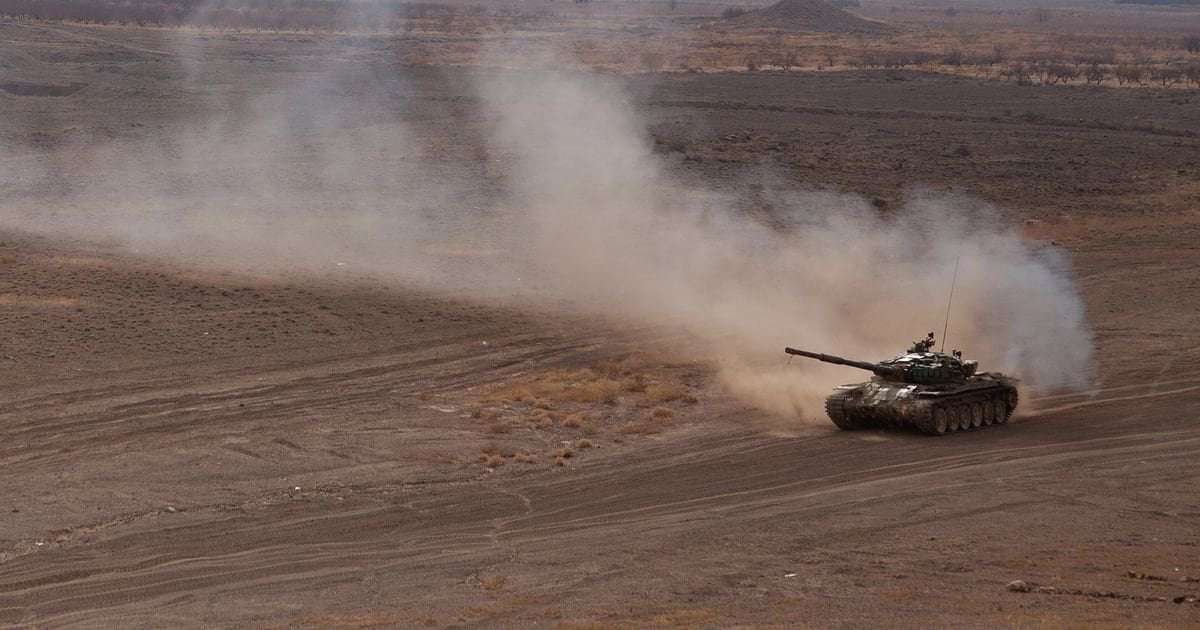Ahead of Prime Minister Narendra Modi's official state visit to the USA, officials of both countries have intensified their discussions on co-producing jet engines, long-range artillery, and infantry vehicles under the Initiative on Critical and Emerging Technologies.
India's National Security Advisor Ajit Doval and U.S. NSA Jake Sullivan launched iCET earlier this year.
It was done at the direction of U.S. President Joe Biden and Indian Prime Minister Narendra Modi, who, after their Tokyo meeting in May 2022, announced to elevate and expand the strategic technology partnership and defence industrial cooperation between the governments, businesses, and academic institutions of the two countries.
At a meeting with Indian Defence Secretary Giridhar Aramane at the Pentagon, U.S. Deputy Defense Secretary Kathleen Hicks termed the proposals to co-produce jet engines, long-range artillery, and infantry vehicles under iCET 'unprecedented opportunities' to strengthen ties between the defence sectors of the two nations.
The two officials discussed priorities for strengthening the U.S.-India defence partnership, including increasing defence industrial cooperation and operational collaboration, Pentagon spokesperson Eric Pahon said.
Hicks underscored the importance of the U.S.-India relationship as critical for promoting peace and prosperity in the Indo-Pacific and beyond. Pahon also reiterated the importance of deepening military-to-military relations between the two nations as the technology partnership grows.
Reiterating the US's support for India's defence modernisation objectives, including increasing investments in Indian domestic manufacturing, Hicks and Aramane welcomed the upcoming launch of INDUS-X ahead of PM Modi's visit to the United States in June.
They also highlighted its value as an opportunity to promote partnerships between the two countries' defence innovation ecosystems.
A day earlier, the two officials co-chaired the 17th U.S.-India Defense Policy Group meeting.
The dialogue advanced an ambitious agenda—including industrial cooperation, information sharing, maritime security, and technological collaboration—that reflects the robust and comprehensive defence ties between the United States and India, said U.S. Department of Defense spokesperson Lt. Col. David Herndon.
"The officials exchanged views about shared priorities in the Indian Ocean Region and aligning the U.S.-India partnership with other like-minded partnerships to sustain a free and open Indo-Pacific.
"The leaders reinforced their commitment to strengthening cooperation and interoperability between the U.S. and Indian militaries to work together in all domains and across all services," the spokesperson added.

Command0Dude on May 20th, 2023 at 05:18 UTC »
I suspect a big influence on the decision is the highlight of how abysmal a lot of Russian hardware is. There was a recent story on the T-90 Ukraine donated to the US for technical analysis. tl;dr the review was scathing and highlighted a lot of shoddy manufacturing.
thinkB4WeSpeak on May 20th, 2023 at 04:09 UTC »
I mean it makes sense, India is a historic enemy of China and they still have border spats. Also we've trained with India for some time, we sent our brigades Cav unit to train with them for a month.
Falls_stuff on May 20th, 2023 at 01:55 UTC »
SS: Ahead of Prime Minister Narendra Modi's official state visit to the USA, officials of both countries have intensified their discussions on co-producing jet engines, long-range artillery, and infantry vehicles under the Initiative on Critical and Emerging Technologies. India's National Security Advisor Ajit Doval and U.S. NSA Jake Sullivan launched iCET earlier this year. It was done at the direction of U.S. President Joe Biden and Indian Prime Minister Narendra Modi, who, after their Tokyo meeting in May 2022, announced to elevate and expand the strategic technology partnership and defence industrial cooperation between the governments, businesses, and academic institutions of the two countries. At a meeting with Indian Defence Secretary Giridhar Aramane at the Pentagon, U.S. Deputy Defense Secretary Kathleen Hicks termed the proposals to co-produce jet engines, long-range artillery, and infantry vehicles under iCET 'unprecedented opportunities' to strengthen ties between the defence sectors of the two nations.